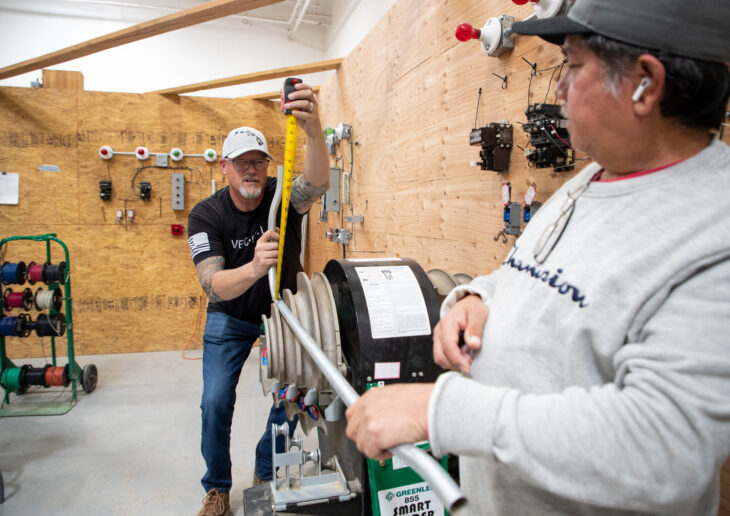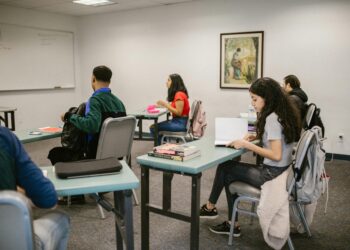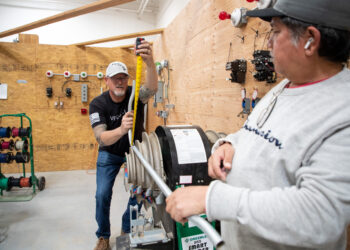Enrollment in courses not offering credit toward a degree or certificate are outpacing for-credit programs in some states (Fed Communities). And it’s no wonder. With the convenience, minimal time commitment, and low or no cost, noncredit courses present an attractive option. In Riverside and San Bernardino Counties, community colleges across the region offer a wide range of noncredit courses completely free of charge.
“Noncredit programs are designed to be very focused for people to either move into a career field or move up within their field,” says Richard Radcliffe, Dean of the School of Public Safety and Industrial Technology at Victor Valley College (VVC). Although the majority take these courses for career and professional development, many people take them for a side business or personal interest, Radcliffe says. Noncredit courses can also be a bridge to for-credit programs.
Courses align with regional job demand and can lead to entry-level jobs with good salaries and growth potential. In Riverside and San Bernardino Counties, courses are offered in Advanced Manufacturing; Advanced Transportation & Logistics; Agriculture & Natural Resources; Art, Media & Entertainment; Business & Entrepreneurship; Education & Human Services; Energy, Construction & Utilities; Health; Information & Communication Technologies; Retail, Tourism & Hospitality; Public Services; and more.
Students can also gain widely applied skills that employers want, such as the ability to learn, communication, computer proficiency, critical thinking, listening, management, math, mechanical understanding, problem-solving, situational awareness, teamwork, and technical ability.
Radcliffe says that Victor Valley College reviews annual Centers of Excellence reports on industry trends and labor needs in the region when deciding what courses to offer. They also listen to their network of contacts in the community.
“We’re very active in our Chamber of Commerce, so we hear from Chamber members pretty easily when there’s a need for certain skills in the area,” he says.
Most courses are offered in-person but Radcliffe estimates up to 30% of noncredit courses are at least partially online. Some courses offer online lectures accompanied by in-person lab components.
For other community colleges looking to develop their noncredit programs, Radcliffe says it is helpful to have a full-time faculty member who takes ownership of your noncredit programs and provides instructional leadership to new part-time instructors.
He also points to another challenge that comes with hiring many noncredit course instructors.
“In the noncredit area, we wind up with about 70 percent going through the equivalency process because in these vocational programs most people don’t have a degree,” he says. “So, we find that it’s a longer process to onboard people than when they come in from the academic side.”
Visit readysetcareer.org/noncredit for more information and links to noncredit courses at all Riverside and San Bernardino County community colleges.




